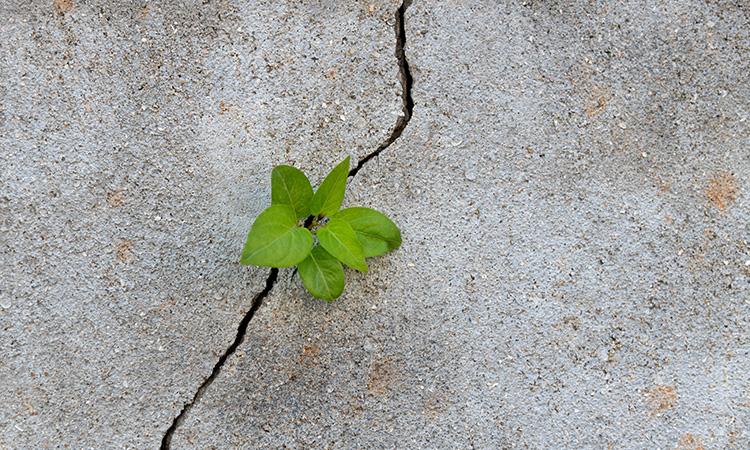Originally published on January 31st, 2023, in Twin Cities Business magazine.
“Whatever our dreams, ideas or projects, we plant a seed, nurture it and then reap the fruits of our labor.” —Oprah Winfrey
Our modern world is set up for instant gratification. When we want driving directions, our phones instantly calculate the fastest route. Online orders are often delivered to our house within a day–sometimes even hours. This is pretty amazing and helpful in many ways. But it has also conditioned us to expect quick outcomes and immediate results.
This sense of immediacy has also permeated the way we think about business—many initiatives are given only a few quarters or a year before they are determined successful or canceled. But some efforts take more time —they just aren’t instant. Like DEI.
As we start this new year, I want to share a new perspective on understanding your DEI efforts. When it comes to the work of building inclusive environments, an add-water-and-stir approach (i.e., instant) doesn’t work. Outcomes won’t be immediate—they will take time, perhaps a long time. This long-term view isn’t easy to reconcile with our culture of “I want it right now” and “We’re all about results.” I know. Truthfully, if you had asked me two years ago why DEI work is necessary, I would have said that it’s necessary to change the workplaces we are in right now. I thought imminent, or immediate, change was possible. Now I feel differently because I see how long people have been working and how hard to achieve the little we have. I have come to realize that what is urgent and should be instant is actions, not outcomes.
We must do something now even if everything doesn’t happen now. In doing DEI work, we are planting seeds for a better future, and seeds take time.
As a leader, you and your company could absolutely decide to do no DEI work, which may never negatively impact your standings in the community, at least today. But over time, as the population gets more and more diverse, doing nothing will cost you. By not having done work now, you will be playing catch up down the road. Because the future is far more diverse than the past and we should be preparing for that now.
According to the 2020 US Census, BIPOC (Black people, Indigenous people, and other People of Color) currently constitute the majority of the population in California, Texas, Hawaii, Nevada, Maryland, and New Mexico. BIPOC in Arizona, Florida, Georgia, Louisiana, Mississippi, New Jersey, and New York make up more than 40 percent of the population. Using the 2020 data, the US Census Bureau predicts that by the year 2044, the United States will have no clear racial or ethnic majority.
According to the new population projections:
- Whites will make up 49.7% of the population, followed by Latinos at 25%, African Americans at 12.7%, and
- Asians at 7.9%. Approximately 4% of the population will be multiracial.
- The multiracial population was measured at 9 million people in 2010 and at 33.8 million people in 2020, a 276% increase.
There is no denying that the nation’s workforce is becoming increasingly diverse. In the 40 years between 1980 and 2020, the white working-age population declined from 83% of the nation’s total to 63%, while the number of historically underrepresented workers doubled. Extrapolating from 2010 to 2030, BIPOC will represent the largest share of workforce growth and will account for 120%of total net workforce growth. The share of total net growth in the Hispanic/Latino workforce is expected to be the highest of all racial and ethnic groups, reaching close to 78%.
Bringing it back to Minnesota, a September 2023 Star Tribune article stated, “People of color make up about one-quarter of the state’s population and the new data shows that group, which has high percentages of young people, will change the face of Minnesota in the coming decades.”
The seeds we’re planting now will hopefully create better environments for those future employees, customers, and colleagues above and position your company and community for equitable outcomes that serve this more diverse population.
So, while the results you desire from the work you’re doing may not be achieved during your time at the company—heck, they might not even be achieved in your lifetime—at some point, they will be felt by others and will contribute to different outcomes. If we reorient our expectations and redefine success around that, I think our energy and DEI efforts will be better served. We don’t do the work despite the results taking time, we do it because of that, knowing our work will take root and grow.
If everyone stopped planting new trees today, our world would look bleak in 30 years. The opposite can also be true: if we plant more and more trees today, the world will be even fuller and greener than it is now.
In this new year, I hope this new perspective gives you motivation and grace to keep planting seeds in a steady way. Your work will eventually work. And that’s worth the work.
Thank you for reading,
Seena
P.S. Have questions? Want to see a specific topic covered? Message me on LinkedIn.

